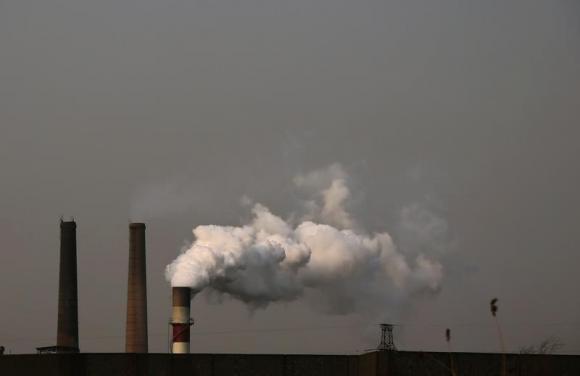 |
|
Smoke rises from a chimneys of a steel mill on a hazy day in Fengnan district of Tangshan, Hebei province February 18, 2014.[Photo/Agencies] |
A new law being deliberated by top legislators promises to strengthen environmental protection in the country by levying a national green tax on enterprises that discharge pollutants, rather than local governments being responsible for charging them fees for post-discharge treatment.
The existing system, which has been in place for nearly four decades, is no longer fit for purpose, as it fails to motivate companies to clean up their acts.
This is not only because the fees are too low, but also because they are supposed to be collected by the local environmental watchdogs who lack the teeth to effectively do that duty.
Also under the existing system, it is the local authorities, rather than the central government, that decide how any fees that are collected are used, and this is rarely for treating pollution or improving environmental protection.
All this has made it imperative to push forward reform so the central government can take a national perspective and enforce an improved system.
The draft law on an environmental protection tax, which was presented to the national legislature for deliberation on Monday, does just that and represents a major step forward for environmental protection in the country.
In addition to solving the problem of partial payment or even nonpayment of the fees by making any nonpayment of the green tax automatically illegal, the proposed law also means polluting enterprises will feel a greater financial pinch to encourage them to clean up their operations. It stipulates that the tax to be levied shall be no less than current fees, but gives local governments the discretionary power to raise the tax based on their economic and environmental conditions.
Many local governments already raised their fees for polluters last year. For example, the fees imposed in Beijing are now nine times that of the minimum national standards. But once the law takes effect, the green tax will be even higher.
To encourage technological innovation, the draft law also sets a preferential tax rate that stipulates that enterprises with air and water pollutant emissions less than half the national standards will have the tax reduced by half. This should be an impetus for major polluters, such as thermal power, iron and steel, cement and mining companies to seek technological upgrades.
While the scope of the proposed tax is still limited, bringing environmental protection under the auspices of the national taxation authority rather than local governments promises to be an effective motivator for companies to play their part in creating a "beautiful China".